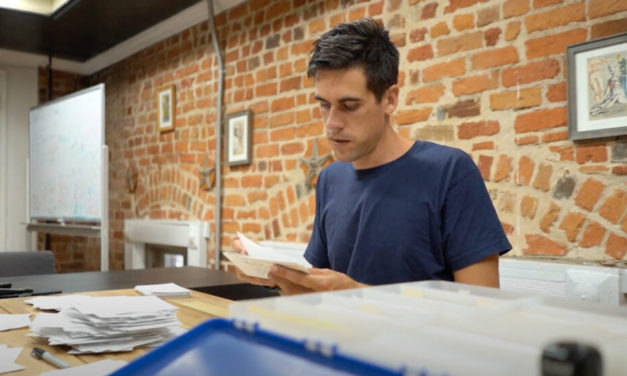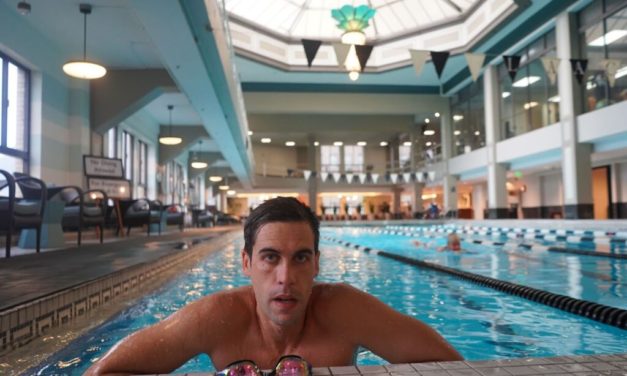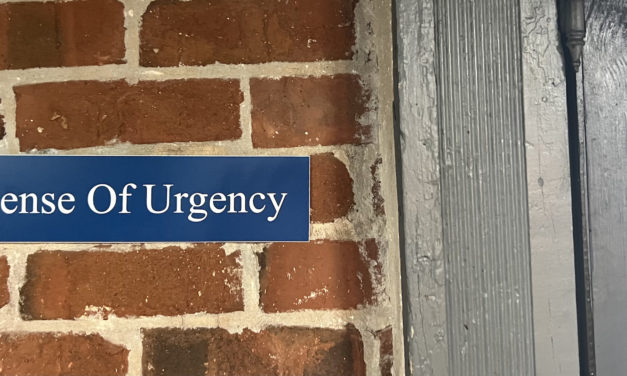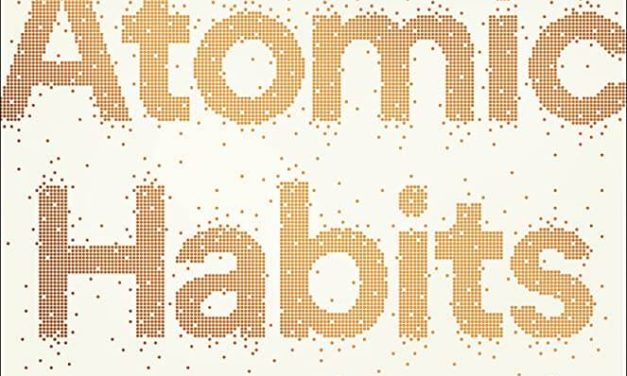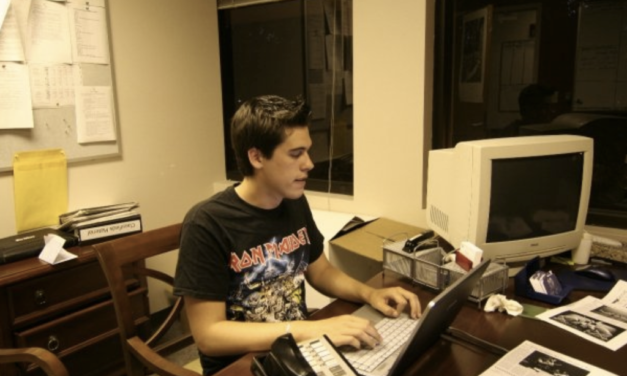Category: Personal Development
The Moment That Ruins Our Focus
Apr 26, 2024 | Personal Development, Your Life
By Leo Babauta I challenge you to do a test before you read the rest of this post (well OK, read the next two paragraphs then go do the challenge) … Open an email that’s been sitting in your inbox but that you’ve been avoiding responding to or acting on. Pick the hardest one. Try […]
The post The Moment That Ruins Our Focus appeared first on zen habits.
Unlock Your Potential: Watch the “Ask Jack Canfield” Replay for Life-Changing Advice
Apr 25, 2024 | Personal Development, Your Life
Unlock Your Potential: Watch the “Ask Jack Canfield” Replay for Life-Changing Advice
Hello everyone, it’s Jack Canfield here. I’m thrilled to share with you the replay of our “Ask Jack Canfield” workshop, a session I designed to help you transform all areas of your life. If you’re ready to take your personal, professional, and spiritual growth to new heights, this replay is a must-watch. Filmed live from […]
The post Unlock Your Potential: Watch the “Ask Jack Canfield” Replay for Life-Changing Advice appeared first on Jack Canfield.
Episode 19 | Healing The Heart and Soul With Plant Medicine With Gerry Powell & Jack Canfield
Apr 24, 2024 | Personal Development, Your Life
Episode 19 | Healing The Heart and Soul With Plant Medicine With Gerry Powell & Jack Canfield
From Crisis to Healing: Discover The Power of Plant Medicine Welcome to the Jack Canfield Podcast. It’s my pleasure to introduce our esteemed guest today, Gerry Gerard Armond Powell. He’s a conscious entrepreneur and the founder and CEO of Rythmia Life and Advancement Center in Costa Rica. This program is renowned for its transformative impact […]
The post Episode 19 | Healing The Heart and Soul With Plant Medicine With Gerry Powell & Jack Canfield appeared first on Jack Canfield.
This is The Only Way (I Know Of) To Travel Through Time
Apr 24, 2024 | Personal Development, Your Life
Live 10th Anniversary Random Show with Kevin Rose — Exploring What’s Next, Testing Ozempic, Modern Dating, New Breakthrough Treatments for Anxiety, Bitcoin ETFs, Mike Tyson vs. Jake Paul, and Engineering More Awe in Your Life (#733)
Apr 23, 2024 | Personal Development, Your Life
Live 10th Anniversary Random Show with Kevin Rose!
The post Live 10th Anniversary Random Show with Kevin Rose — Exploring What’s Next, Testing Ozempic, Modern Dating, New Breakthrough Treatments for Anxiety, Bitcoin ETFs, Mike Tyson vs. Jake Paul, and Engineering More Awe in Your Life (#733) appeared first on The Blog of Author Tim Ferriss.
How a Book Club Can Make You Happier
Apr 22, 2024 | Personal Development, Your Life
Ancient philosophers and contemporary scientists agree: Strong relationships make people happier. We need enduring, intimate bonds; we need to feel like we belong; we need to be able to confide; we need to be able to get support—and just as important, give support. Ancient philosophers and contemporary scientists also agree: Reading makes people happier. Reading […]
The post How a Book Club Can Make You Happier appeared first on Gretchen Rubin.
The Focus of a Monk
Apr 19, 2024 | Personal Development, Your Life
By Leo Babauta As I write this, I’m on a long plane ride — I’ve written many posts on planes and trains, and I find it actually much easier to write this way despite the shakiness of my laptop on these rides. It’s easy to write on planes and trains because there’s not as much […]
The post The Focus of a Monk appeared first on zen habits.
Episode 18 | Happy Money Secrets with Ken Honda & Jack Canfield
Apr 17, 2024 | Personal Development, Your Life
Episode 18 | Happy Money Secrets with Ken Honda & Jack Canfield
Beyond Wealth: Crafting a Life of Joy with the Japanese Art of Happy Money Today, we’re diving into a topic that’s close to my heart, the art of happy money with my good friend, Ken Honda. Ken is a pioneer in marrying the concepts of money and happiness in ways that transform lives. He’s a […]
The post Episode 18 | Happy Money Secrets with Ken Honda & Jack Canfield appeared first on Jack Canfield.
Free Guided Visualization with Jack Canfield
Apr 17, 2024 | Personal Development, Your Life
Free Guided Visualization with Jack Canfield
Experience the Power of Visualization I’m thrilled to share a transformative journey into the world of creative visualization through a recent 90-minute masterclass that I held. I recently took 1000s of people through a LIVE, “Done For You”, Guided Creative Visualization… to help them manifest using the Law of Attraction – and now it’s available […]
The post Free Guided Visualization with Jack Canfield appeared first on Jack Canfield.
Martha Beck — The Amazing and Brutal Results of Zero Lies for 365 Days, How to Do a Beginner “Integrity Cleanse,” Lessons from Lion Trackers, and Novel Tactics for Reducing Anxiety (#732)
Apr 17, 2024 | Personal Development, Your Life
Interview with Martha Beck on The Tim Ferriss Show podcast.
The post Martha Beck — The Amazing and Brutal Results of Zero Lies for 365 Days, How to Do a Beginner “Integrity Cleanse,” Lessons from Lion Trackers, and Novel Tactics for Reducing Anxiety (#732) appeared first on The Blog of Author Tim Ferriss.
Honoring Your Word to Yourself
Apr 12, 2024 | Personal Development, Your Life
By Leo Babauta There is a power to our word that is very often underdeveloped — words are magic, and can create the world around us. But most of us use this magic as if it weren’t powerful. The first way we see this is that we often don’t honor our word to ourselves. In […]
The post Honoring Your Word to Yourself appeared first on zen habits.
Question: By Sending Energy Or Even Love, Am I Not Changing What Is Not My Business To Change?
Apr 11, 2024 | Personal Development, Your Life

 I will offer some standards here that I use myself. As always, question everything and craft the set of ethical standards that works for you and your journey.
I will offer some standards here that I use myself. As always, question everything and craft the set of ethical standards that works for you and your journey.
Dr. David Spiegel, Stanford U. — Practical Hypnosis, Meditation vs. Hypnosis, Pain Management Without Drugs, The Neurobiology of Trance, and More (#731)
Apr 10, 2024 | Personal Development, Your Life
Interview with Dr. David Spiegel on The Tim Ferriss Show podcast.
The post Dr. David Spiegel, Stanford U. — Practical Hypnosis, Meditation vs. Hypnosis, Pain Management Without Drugs, The Neurobiology of Trance, and More (#731) appeared first on The Blog of Author Tim Ferriss.
Cultivate a Positive Mindset
Apr 5, 2024 | Personal Development, Your Life
By Leo Babauta One of the best long-term things you can do for a happier life and better relationships is to cultivate a positive mindset. People with positive mindsets live longer, happier lives. They have lower rates of heart disease, cancer. They live about 7.5 years longer, on average. That’s huge. So developing a positive […]
The post Cultivate a Positive Mindset appeared first on zen habits.
Reed Hastings, Co-Founder of Netflix — How to Cultivate High Performance, The Art of Farming for Dissent, Favorite Failures, and More (#730)
Apr 3, 2024 | Personal Development, Your Life
Interview with Reed Hastings on The Tim Ferriss Show podcast.
The post Reed Hastings, Co-Founder of Netflix — How to Cultivate High Performance, The Art of Farming for Dissent, Favorite Failures, and More (#730) appeared first on The Blog of Author Tim Ferriss.
Episode 17 | The Art & Science of Living Your Dreams with Mary Morrissey
Apr 3, 2024 | Personal Development, Your Life
Episode 17 | The Art & Science of Living Your Dreams with Mary Morrissey
How to Use Brave Thinking to Build Your Dreams Today I am thrilled to be sitting down with a very dear friend and an extraordinary visionary in the field of personal development, Mary Morrissey. As someone who has been a beacon of hope and an unwavering advocate for the potential that lies within each of […]
The post Episode 17 | The Art & Science of Living Your Dreams with Mary Morrissey appeared first on Jack Canfield.
You Need This Practice In Your Life
Apr 3, 2024 | Personal Development, Your Life
Legendary Actor Scott Glenn — How to Be Super Fit at 85, Lessons from Marlon Brando, How to Pursue Your Purpose, The Art of Serendipity, Stories of Gunslingers, and More (#729)
Mar 27, 2024 | Personal Development, Your Life
Interview with Scott Glenn on The Tim Ferriss Show podcast.
The post Legendary Actor Scott Glenn — How to Be Super Fit at 85, Lessons from Marlon Brando, How to Pursue Your Purpose, The Art of Serendipity, Stories of Gunslingers, and More (#729) appeared first on The Blog of Author Tim Ferriss.
What I Learned From My No-Spend Month
Mar 26, 2024 | Personal Development, Your Life
This year, for our “24 for 24” lists, my sister Elizabeth and I decided to observe a “No-Spend February.” For the month of February, we didn’t make any unnecessary purchases. Why? A brief period of deprivation can help us learn about ourselves and our patterns. It can re-set our tolerances, so that going forward, we […]
The post What I Learned From My No-Spend Month appeared first on Gretchen Rubin.
How to Start a War
Mar 22, 2024 | Personal Development, Your Life
“If you want to start a war, call me.”
He handed me his card. It was nondescript: Name, number, AOL email address, stock art of an eagle. He could have passed for a plumber, handyman, or tree remover.
The post How to Start a War appeared first on The Blog of Author Tim Ferriss.
How to Break Dependence on the Phone
Mar 22, 2024 | Personal Development, Your Life
By Leo Babauta On average, people spend more than 3 hours on their phones each day, picking up their phones nearly 60 times a day … with some people spending closer to 4 hours. These numbers aren’t meant to be judgments — it’s not a bad thing to look at your phone — but instead […]
The post How to Break Dependence on the Phone appeared first on zen habits.
Episode 16 | Power of Intention with Lynn McTaggart
Mar 20, 2024 | Personal Development, Your Life
Episode 16 | Power of Intention with Lynn McTaggart
The Power of Intention For Episode 16 of the Jack Canfield Podcast, we’re thrilled to welcome Lynne McTaggart, an internationally acclaimed author and thought leader in the realms of consciousness, intention, and the science of spirituality. This episode dives deep into how collective thought can transform our lives and the world. Lynne shares enlightening insights […]
The post Episode 16 | Power of Intention with Lynn McTaggart appeared first on Jack Canfield.
You Can’t Succeed In Life Without This Skill
Mar 20, 2024 | Personal Development, Your Life
Seth Godin — Coaching Tim on Overcoming Resistance, Lessons from Isaac Asimov, Writing Secrets After 8,500+ Daily Blog Posts, The Dangers of Authenticity, Practices for Consistency, and Much More (#728)
Mar 20, 2024 | Personal Development, Your Life
Interview with Seth Godin on The Tim Ferriss Show podcast.
The post Seth Godin — Coaching Tim on Overcoming Resistance, Lessons from Isaac Asimov, Writing Secrets After 8,500+ Daily Blog Posts, The Dangers of Authenticity, Practices for Consistency, and Much More (#728) appeared first on The Blog of Author Tim Ferriss.
What To Think About When You Think About Spring
Mar 13, 2024 | Personal Development, Your Life
Hugh Howey, Bestselling Author of Wool and Mega-Creative — How to Sell Millions with Self-Publishing, How to Find Your Big Break, Making Hit TV Shows (Silo), How AI Will Upend Your Life, Nonconformist Creative Process, Advice for Writers, and More (#726)
Mar 13, 2024 | Personal Development, Your Life
Interview with Hugh Howey on The Tim Ferriss Show podcast.
The post Hugh Howey, Bestselling Author of Wool and Mega-Creative — How to Sell Millions with Self-Publishing, How to Find Your Big Break, Making Hit TV Shows (Silo), How AI Will Upend Your Life, Nonconformist Creative Process, Advice for Writers, and More (#726) appeared first on The Blog of Author Tim Ferriss.
How To Find Your Life Purpose
Mar 11, 2024 | Personal Development, Your Life
If you want to be fulfilled, happy, content, and experience inner peace and ultimate fulfillment, it’s critical that you learn how to find your passion and life purpose.
The post How To Find Your Life Purpose appeared first on Jack Canfield.
Money In Relationships – Your Children And Your Money
Mar 11, 2024 | Personal Development, Your Life
40 Life Lessons I Know at 40 (That I Wish I Knew at 20)
Mar 8, 2024 | Personal Development, Your Life
Today is my 40th birthday.
When I turned 30 a decade ago, I wrote an article sharing life lessons to survive your 20s and crowd-sourced advice on how to excel in your 30s. And apparently you guys loved it.
So, here’s more of the good stuff: 40 life lessons I now know at 40 that I wish I knew at 20.
Dig in.
1. Your relationship with others is a direct reflection of your relationship with yourself
If you treat yourself poorly, then you will also unconsciously seek out and tolerate others who treat you poorly.
If you treat yourself with dignity and respect, then you will only tolerate others who treat you with dignity and respect.
Get right with yourself, get right with the world.
2. The only way to feel better about yourself is to do things worth feeling good about
Respect is earned, not given.
3. The only failure is not trying
The only rejection is not asking. The only mistake is not risking anything.
Success and failure are fuzzy concepts that only exist in your mind before you do something. Not after.
After the fact, everything will be a mixture of both. The only real …
Episode 15 | The Science of Happiness with Shawn Achor
Mar 6, 2024 | Personal Development, Your Life
Episode 15 | The Science of Happiness with Shawn Achor
Jack Canfield Podcast: Episode 15 The Science of Happiness Today I am really excited because I have a truly special guest joining us: Shawn Achor. Shawn is one of the world’s leading experts on the connection between happiness and success. His research on mindset made the cover of the Harvard Business Review. He’s lectured or […]
The post Episode 15 | The Science of Happiness with Shawn Achor appeared first on Jack Canfield.
Behind the Scenes: Who Is The Real Audience of The Tim Ferriss Show?
Mar 6, 2024 | Personal Development, Your Life
A few years ago, a famous creator asked me if I’d ever learned anything from my audience, as he hadn’t. My response? “Oh, God, yes! More than I can possibly begin to explain.” That’s the whole reason I have comments on this blog, plus clear rules. If you cultivate the right community, the learnings are …
Continue reading “Behind the Scenes: Who Is The Real Audience of The Tim Ferriss Show?”
The post Behind the Scenes: Who Is The Real Audience of The Tim Ferriss Show? appeared first on The Blog of Author Tim Ferriss.
Barbara Corcoran — How She Turned $1,000 into a $5B+ Empire: PR Stunts, Sales Techniques, Critical Early Wins, Fighting Trump, and Becoming a Real Estate Mogul (#725)
Mar 6, 2024 | Personal Development, Your Life
Interview with Barbara Corcoran on The Tim Ferriss Show podcast.
The post Barbara Corcoran — How She Turned $1,000 into a $5B+ Empire: PR Stunts, Sales Techniques, Critical Early Wins, Fighting Trump, and Becoming a Real Estate Mogul (#725) appeared first on The Blog of Author Tim Ferriss.
The Indiscipline Of Overwork
Mar 5, 2024 | Personal Development, Your Life
New Posts on Mental Health and Purposeful Productivity
Mar 4, 2024 | Personal Development, Your Life
How to Develop a Strong Sense of Self
Mar 4, 2024 | Personal Development, Your Life
By Leo Babauta Developing a strong sense of self is one of the most under-appreciated ways to be happy. To have healthy relationships, with others and with yourself. It’s not often understood, and as a result, problems in this area cause problems in all areas of our lives. Let me point out just some of […]
The post How to Develop a Strong Sense of Self appeared first on zen habits.
How Mind Mapping Will Help You Achieve Your Goals
Feb 28, 2024 | Personal Development, Your Life
How Mind Mapping Will Help You Achieve Your Goals
Mind mapping is a powerful way to create a dynamic to-do list. It’s simple to learn and use, too. That’s why today, I want to discuss how you can leverage the power of mind mapping to achieve your goals and succeed at anything you choose! Achieve Your Goals and Create the Life You Want Download My […]
The post How Mind Mapping Will Help You Achieve Your Goals appeared first on Jack Canfield.
Claire Hughes Johnson, Building Stripe from 160 to 6,000+ Employees — How to Take Radical Ownership of Your Life and Career (#724)
Feb 27, 2024 | Personal Development, Your Life
Interview with Claire Hughes Johnson on The Tim Ferriss Show podcast.
The post Claire Hughes Johnson, Building Stripe from 160 to 6,000+ Employees — How to Take Radical Ownership of Your Life and Career (#724) appeared first on The Blog of Author Tim Ferriss.
What Type of Gold Star Works for You?
Feb 27, 2024 | Personal Development, Your Life
We all love a good self-discovery question. Are you a morning person or a night person? An over-buyer or an under-buyer? A simplicity-lover or an abundance-lover? Do you prefer competition or cooperation? When we know ourselves, we can tailor our surroundings, our schedules, and our choices to suit our own nature. It’s easier to change […]
The post What Type of Gold Star Works for You? appeared first on Gretchen Rubin.
In Case You Missed It: January 2024 Recap of “The Tim Ferriss Show” (#723)
Feb 23, 2024 | Personal Development, Your Life
Welcome to another episode of The Tim Ferriss Show, where it is my job to deconstruct world-class performers to tease out the routines, habits, et cetera that you can apply to your own life. This is a special inbetweenisode, which serves as a recap of the episodes from last month. It features a short clip from each …
Continue reading “In Case You Missed It: January 2024 Recap of “The Tim Ferriss Show” (#723)”
The post In Case You Missed It: January 2024 Recap of “The Tim Ferriss Show” (#723) appeared first on The Blog of Author Tim Ferriss.
33 Powerful Books That Might Change Your Life
Feb 21, 2024 | Personal Development, Your Life
I’ve read over 1,000 nonfiction books in my life, and these 33 are the most powerful of them all. I can honestly say they changed my life, who’s to say they won’t change yours too?
Don’t just take my word for it though. Read on for my summary of all 33 books and see for yourself how your next read might just change your life.
https://youtu.be/7kwqWgXzHvc
1. Atomic Habits by James Clear
 This might be the most practical book ever written on simple behavioral change.
This might be the most practical book ever written on simple behavioral change.
Atomic Habits has three big takeaways. The first is that small lifestyle changes compound over a long period of time. So you don’t want to try to be a completely different person tomorrow, you want to be 1% better 100 days in a row.
The second big takeaway can be summarized with the line, “We don’t rise to the level of our goals, but we fall to the level of our systems.” The idea here is that it’s not about ambition or effort, it’s about creating an environment that makes behavioral change inevitable.
And finally, the third takeaway is that habits don’t stick unless we alter our identities. That means it’s …
Episode 14 | Embracing Your True Self: The Art of Self Love & Self Care with Shannon Kaiser
Feb 21, 2024 | Personal Development, Your Life
Episode 14 | Embracing Your True Self: The Art of Self Love & Self Care with Shannon Kaiser
Jack Canfield Podcast: Episode 14 Today I’m really, really thrilled to have a special guest with us. Shannon Kaiser is a renowned spiritual guide and self-love teacher. She’s someone who has not only journeyed through the challenging valleys of depression and anxiety, but has emerged to help countless others find their path to fulfillment. Shannon […]
The post Episode 14 | Embracing Your True Self: The Art of Self Love & Self Care with Shannon Kaiser appeared first on Jack Canfield.
Cal Newport — How to Embrace Slow Productivity, Build a Deep Life, Achieve Mastery, and Defend Your Time (#722)
Feb 21, 2024 | Personal Development, Your Life
Interview with Cal Newport on The Tim Ferriss Show podcast.
The post Cal Newport — How to Embrace Slow Productivity, Build a Deep Life, Achieve Mastery, and Defend Your Time (#722) appeared first on The Blog of Author Tim Ferriss.
37 Pieces of Career Advice I Wish I’d Known Earlier
Feb 20, 2024 | Personal Development, Your Life
Why I Am Vegan (and how to make it easy)
Feb 16, 2024 | Personal Development, Your Life
By Leo Babauta My wife Eva and I have been vegan for over 11 years now, and we love it. I don’t talk about veganism a lot on Zen Habits, but today I’d love to share a little about it, if you’ll indulge me. Let me start by talking about why I’m vegan, and then […]
The post Why I Am Vegan (and how to make it easy) appeared first on zen habits.
Master Negotiator William Ury — Proven Strategies and Amazing Stories from Warren Buffett, Nelson Mandela, Kim Jong Un, Hugo Chávez, and More (#721)
Feb 13, 2024 | Personal Development, Your Life
Interview with William Ury on The Tim Ferriss Show podcast.
The post Master Negotiator William Ury — Proven Strategies and Amazing Stories from Warren Buffett, Nelson Mandela, Kim Jong Un, Hugo Chávez, and More (#721) appeared first on The Blog of Author Tim Ferriss.
Psychic Vs Intuitive – Here Is The Difference
Feb 11, 2024 | Personal Development, Your Life

 Personally, I purposefully avoid many psychic practices because they tend to involve crime and therefore the ugly things that people are capable of doing to each other, and it affects me too much. In my practice, I stick to intuitive guidance for personal growth and transformation, which always ends in joy and self understanding!
Personally, I purposefully avoid many psychic practices because they tend to involve crime and therefore the ugly things that people are capable of doing to each other, and it affects me too much. In my practice, I stick to intuitive guidance for personal growth and transformation, which always ends in joy and self understanding!
Continue reading Psychic Vs Intuitive – Here Is The Difference at Dr. Kathryn Colleen, PhD RMT.
You Don’t Need More How-To Advice — You Need a Painful Reckoning
Feb 9, 2024 | Personal Development, Your Life
Most people have an insufficient reason for action. The pain isn’t painful enough. It’s a nice-to-have, not a must-have. There has been no “Harajuku Moment.”
The post You Don’t Need More How-To Advice — You Need a Painful Reckoning appeared first on The Blog of Author Tim Ferriss.
How to Address What’s Really Causing Your Avoidance
Feb 9, 2024 | Personal Development, Your Life
By Leo Babauta When we are procrastinating, avoiding exercise or some other habit we want to create, or avoiding taking on a difficult project … the underlying cause is rarely what we think it is. We think that all we need to do is do the thing we’re avoiding, and stop procrastinating. Simple! But then […]
The post How to Address What’s Really Causing Your Avoidance appeared first on zen habits.
Episode 13 | Transformation thru Love: A Soulful Journey with Arielle Ford & Jack Canfield
Feb 8, 2024 | Personal Development, Your Life
Episode 13 | Transformation thru Love: A Soulful Journey with Arielle Ford & Jack Canfield
Embracing Love’s Evolution
The post Episode 13 | Transformation thru Love: A Soulful Journey with Arielle Ford & Jack Canfield appeared first on Jack Canfield.
My Visits to the Met Reminded Me of This Profound Truth
Feb 8, 2024 | Personal Development, Your Life
For more than four years, I’ve been visiting the Metropolitan Museum every day. (I skip when it’s closed or I’m traveling.) I started this practice for my book Life in Five Senses. I hoped this daily visit would help me to learn more about my five senses and myself, and how an experience changes with […]
The post My Visits to the Met Reminded Me of This Profound Truth appeared first on Gretchen Rubin.

Support The Mission
This site is free for all to use and enjoy. If you would like to support the mission... SHARE this site with a friend. THEN, follow the links below where you can buy books, unique art and things for your home and office by our founder, Kathryn Colleen PHD RMT.
BOOKS | 3D ART | HOME/OFFICE
